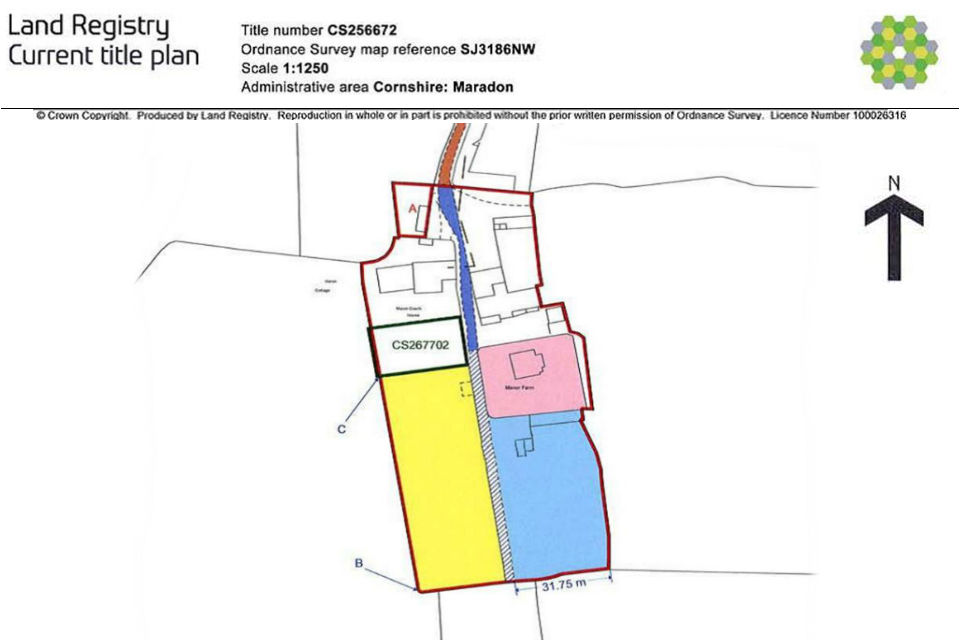Property dispute litigation: mediation: arbitration: adjudication
Solicitors acting in land & property disputes
Mediation: arbitration: litigation: Land Registry adjudication
Disputes over land and property rights litigation can be very expensive.
The Courts have recognised this and have repeatedly warned against becoming embroiled in property disputes.
Agricultural land & rights of way
Warnings
For example in a 2008 case the Judge said:
“… There are too many calamitous neighbour disputes in the courts.
Greater use should be made of the services of local mediators, who have specialist legal and surveying skills and are experienced in alternative dispute resolution. An attempt at mediation should be made right at the beginning of the dispute and certainly well before things turn nasty and become expensive.
By the time neighbours get to court it is often too late for court−based ADR and mediation schemes to have much impact.
Litigation hardens attitudes. Costs become an additional aggravating issue.
Almost by its own momentum the case that cried out for compromise moves onwards and upwards to a conclusion that is disastrous for one of the parties, possibly for both.”
A more recent Court of Appeal judgment reinforced the message:
“The whole exercise has been an uncomfortable experience of unsatisfactory aspects of the conduct and cost of neighbour disputes in the courts.
Everybody agrees that, if at all possible, disagreements between neighbours about rights of way, boundaries or whatever should be settled without ever going near a court.
In my view, professional advisers have a duty to warn their clients at an early stage about the downside of neighbour litigation, even for a successful party.
If the case goes to court there is, as this case shows, some uncertainty about the ultimate outcome. The case does not always end with the trial. Appeals are possible.
What is certain is that, at the end of the day, one of the parties will lose and will usually finish up fixed with an order to pay very considerable legal costs. That is not good for the losing party or for the prospect of harmonious relations between neighbours who continue to live next door to each other after the case is over.
The cost and stress of a court case will often result in the further deterioration of already damaged relationships. The parties might be horrified to discover that the litigation has blighted their properties, as well as their lives.”
Examples:
- “The smell!” “The trees!” “The noise! (at night, when you are trying to sleep, or in office hours, when you are trying to run a business)” How can you (or your landlord) make the neighbours behave?
- Come to that, how can you make your landlord (or your tenant) behave?
- You have bought a house or taken an office next door to the neighbour from hell. The seller was desperate to move and kept it quiet in order not to lose the sale – what can you do?
- Your commercial tenant has failed to pay its rent
- Your tenant wishes to make alterations to the premises. Can you prevent that?
- Your tenant has broken the terms of its lease
- Your commercial tenant has given you notice of an application for a new lease under the 1954 Landlord and Tenant Act – you do not want to grant a new lease. Can you avoid that? How?
- Your tenancy (commercial or residential) is almost up. You want to stay. What can you do? When must you do it?
- I agreed a deal last week and now I am being gazumped. What can I do about it?
- You have received a Section 146 Notice from your landlord. What is one of those? Does it mean your landlord can throw you out? If so, are you entitled to compensation? Or must you pay your landlord now?
- Can your landlord stop you subletting part of your property?
- Your neighbour has impeded your access but the landlord won’t do anything about it
- Your landlord wants you out. He says he wants to redevelop the premises but you think that is just an excuse. What can you do?
- You have missed a deadline. Have you lost your rights?
- Someone claims to have a right of way over your property even though it is not mentioned in your deeds – what can you do?
- Someone claims to own a slice of your land because the deeds do not agree with the Land Registry filed plan
- Someone is generating intolerable noise or fumes near your property or growing trees that stop you getting light
- Your neighbour wants to build a new house on his land. You have something in your deeds (a “covenant”) that says he cannot do so. Your neighbor says that he will have the covenant discharged. Meanwhile he is carrying on with the work. Should your solicitor have warned you this could happen? Can you stop the neighbour’s building until the Court has looked at the question? How do you go about it?
- Your landlord will not tell you how the service charge is calculated. What can you do?
- “I bought off plan. It has been delivered late and is nothing like it. What can I do?”
- You want to buy your flat. Can you force your landlord to sell?
- How do I buy land at auction? What are the pitfalls?
- You sold your lease to someone who has since gone bust. The landlord is chasing you for the tenant’s debt. What can you do?
- What does “Chancel Repair Liability” mean (and there is plenty more jargon where that came from)? We won’t write you an essay about problems like that – if they can be fixed, we will show you how to fix them.
- “It is on my deeds but he says it is his now because of Adverse Possession”. What on earth?
- “This is a Party Wall Notice”.
:







